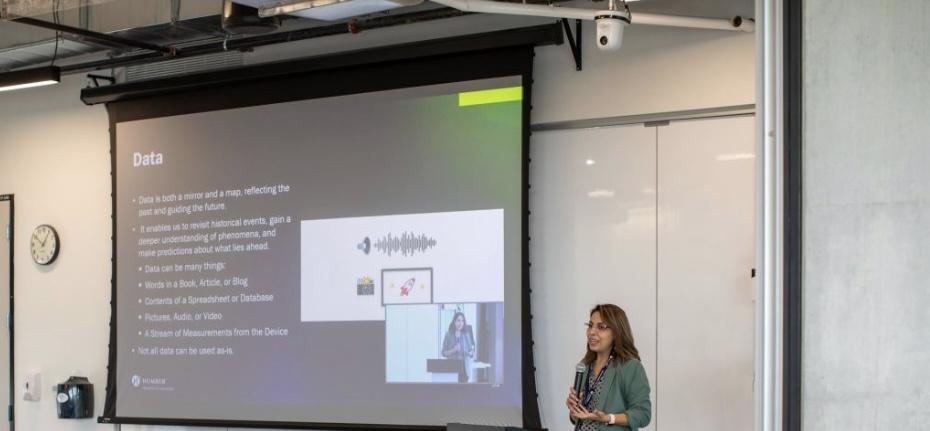
This story is part of an ongoing series that explores the innovative research being led by Humber College's faculty members.
What Parisa Pouladzadeh loves about research is that you’re always learning something new.
Pouladzadeh, a professor and program coordinator with the Artificial Intelligence (AI) with Machine Learning program at Humber College, said research also plays a valuable role in allowing her to stay current in her area of expertise. As she notes, AI is evolving rapidly and it’s easy to fall behind on the latest trends. Conducting research allows her to stay plugged in and up to date on what’s happening with AI, which has benefits both for her and her students.
Pouladzadeh had a research project that wrapped up last summer where she and her team of research assistants were tasked with designing a system with the ability to process and classify speech signals to detect emotions. In simpler terms, it will detect what emotion is being expressed in a phone call in real-time.
Pouladzadeh said the project was initiated by an industry partner and the idea behind it was to let employees dealing with customers know what emotion is being expressed by the customer as it isn’t always clear due to a variety of reasons, including being unable to see their facial expression. Provided with real-time feedback on the emotion, the employee could then change their approach or response based on the confirmed emotion coming from the customer.
The project also had to address the noise from a typical call centre that can have an adverse effect on the system detecting emotion.

Beyond helping industry, this research can also benefit society more widely.
Pouladzadeh has recently started another research project with support from four student research assistants that will explore the use of AI to create an application for children with autism to help them communicate more effectively.
“Having an opportunity to work on this project to help children with autism is my actual dream and I am so incredibly passionate about it,” said Pouladzadeh.
When Pouladzadeh came to Humber, she was intrigued by the fact it was applied research. It meant they were working with industry to create something tangible at the end of the project. It also has many benefits for the student researchers who support the project as they gain critical hands-on experience.
Pouladzadeh remembers her father telling her and her sisters that anything a boy can do, a girl can do. He encouraged them to follow their dreams and what they’re passionate about and not to worry about what other people said or thought. It’s a sentiment that has stuck with her throughout her life.
“At the end of the day, you want to be happy with what you’re doing,” she said.
Pouladzadeh said those who decide to study AI are setting themselves up for future success as it’s a rapidly growing field that is crossing over into many different industries and sectors including business, health care, engineering and more.